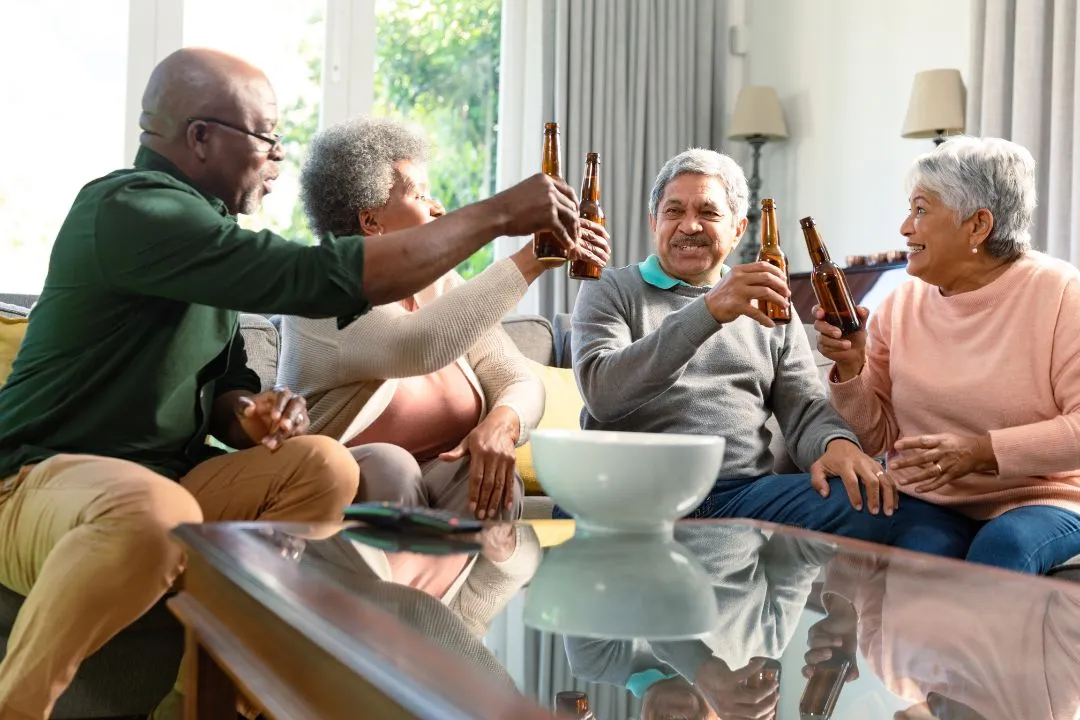Active adult communities are more than just places to live—they are vibrant hubs of social interaction, camaraderie, and community engagement. For retirees and older adults, maintaining social connections and engaging in meaningful activities is crucial to leading a fulfilling and enjoyable lifestyle. In this blog, we delve into why social connections are the heartbeat of active adult living, how community engagement enhances the quality of life, and how residents can foster meaningful relationships within their community.
The Importance of Social Connections in Active Adult Living
Social connections are pivotal in promoting overall well-being and happiness among older adults. Here are several reasons why social connections are essential in active adult communities:
- Combatting Loneliness and Isolation: Retirees may face an increased risk of loneliness and isolation, especially after significant life transitions such as retirement or the loss of a spouse. Active adult communities provide a built-in social network, reducing loneliness and fostering a sense of belonging.
- Emotional Support and Friendship: Meaningful relationships and friendships contribute to emotional resilience and support during joyful and challenging times.
- Enhancing Cognitive Health: Social interaction and stimulating conversations can help maintain cognitive function and memory as individuals age.
- Promoting Physical Health: Social activities often involve physical movement and exercise, which benefits overall health and mobility.
- Sense of Purpose and Contribution: Participating in community activities and volunteering opportunities gives residents a sense of purpose and fulfillment, contributing to a positive self-image and life satisfaction.
Community Engagement: Enriching Quality of Life
Active adult communities offer a wide array of opportunities for residents to engage socially and contribute to the community fabric. Here’s how community engagement enriches quality of life:
- Social Clubs and Interest Groups: Many communities organize social clubs and interest groups based on hobbies, interests, and shared passions. Whether it’s book clubs, gardening groups, or art classes, these activities foster connections among like-minded individuals.
- Fitness and Wellness Programs: Group exercise classes, fitness challenges, and wellness workshops promote physical health and provide opportunities for residents to meet and interact with others who share similar health goals.
- Cultural and Educational Activities: Cultural outings, lectures, workshops, and educational programs enrich residents’ lives by offering opportunities for learning, intellectual stimulation, and cultural enrichment.
- Community Events and Celebrations: From holiday gatherings to themed parties and community festivals, events provide occasions for residents to come together, celebrate milestones, and build community spirit.
- Volunteer Opportunities: Many active adult communities encourage residents to volunteer their time and skills within the community or the broader local area. Volunteering fosters a sense of altruism, strengthens community bonds, and positively impacts society.
Tips for Fostering Social Connections in Active Adult Communities
For residents looking to enhance their social connections and community engagement, here are some practical tips:
- Attend Community Events: Participate in social events, mixers, and gatherings organized by the community to meet new people and strengthen existing friendships.
- Join Clubs and Groups: Explore clubs, hobby groups, and interest-based organizations that align with your passions and interests. These groups offer opportunities to connect with others who share similar hobbies.
- Volunteer Your Time: Get involved in community service projects, committees, or volunteer organizations within the community. Volunteering benefits others and fosters meaningful relationships and a sense of accomplishment.
- Stay Active: Participate in fitness classes, group walks, or sports activities that promote physical health while providing opportunities for social interaction.
- Reach Out and Stay Connected: Initiate conversations, invite neighbors for coffee or a meal, and connect with friends through social media or community bulletin boards.
Conclusion: Embrace Community and Connection
Social connections and community engagement are the heartbeat of active adult living, enriching residents’ lives with friendships, shared experiences, and a sense of belonging. By actively participating in community activities, joining clubs, volunteering, and attending events, residents can cultivate meaningful relationships, stay engaged in life, and enjoy a vibrant and fulfilling retirement in their active adult community. Embrace the opportunities for connection and community, and let your active adult community‘s social heartbeat enrich your retirement journey.




